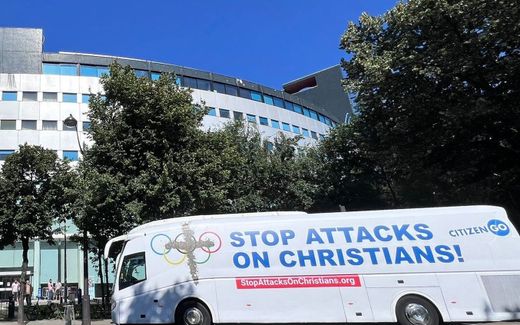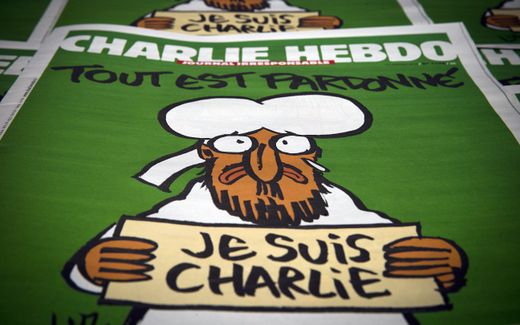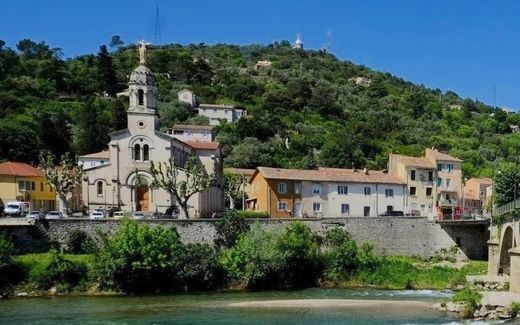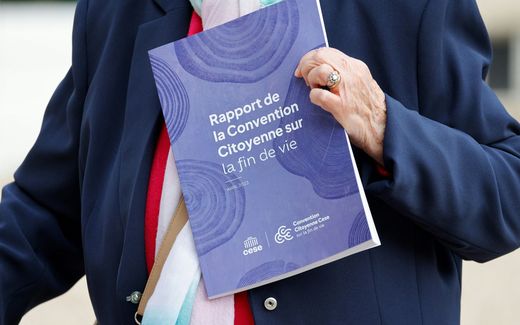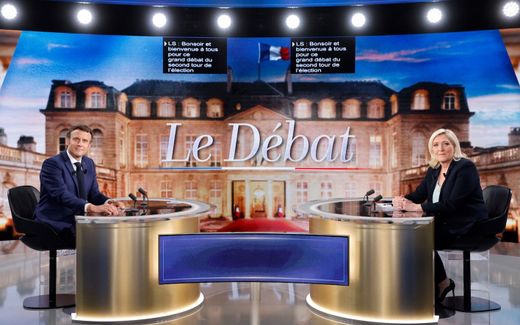Memory into mission: Reflecting 10 years on Paris attacks
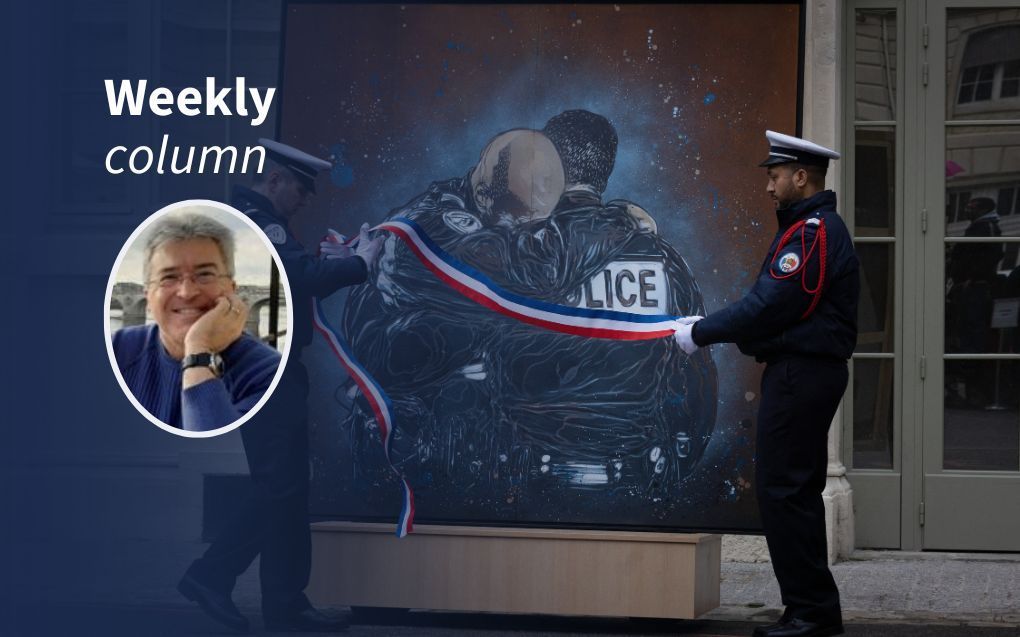
Police officers carry away a ribbon that unveils a fresco dedicated to the police involved in the 2015 attacks in Paris. Photo AFP, Joel Saget
Christian Life
Ten years after the attacks on 13 November 2015, France paid tribute in a ceremony marked by dignity and emotion. At the heart of this commemoration, a powerful truth resonated: love and faith are stronger than hatred.
Stay up to date with Christian news in Europe? Sign up for CNE's newsletter.
My sister-in-law, a member of the Radio France Choir, the only permanent symphonic choir in France, had the privilege of participating in this exceptional ceremony.
As many participants pointed out, the moment was sober, moving and marked by a paradoxical joy. "It's a tribute we need. To ensure that it is not forgotten”, said several victims and relatives of victims.
At 6 p.m. sharp, all the bells of Parisian churches, including those of the recently restored Notre-Dame, rang in tribute to the victims. The main ceremony then took place in the Jardin du Souvenir, a new memorial site inaugurated in the fourth arrondissement of Paris.
Music as the language of the soul
On the steps of the Church of Saint-Gervais-Saint-Protais, not far from the Hôtel de Ville, the Radio France Choir performed Le Requiem des lumières, a new work by Victor Le Masne, and also a composer also known for the anthem of the 2024 Paris Olympic Games.
This creation provided a musical backdrop for collective contemplation. Victor Le Masne conceived it as a secular requiem, while playing with the themes of the liturgical and the sacred.
The 132 names of the victims, a toll that includes two survivors who took their own lives after the attacks, were read aloud by witnesses to that tragic day: the security coordinator at the Stade de France, a nurse from the Paris Fire Brigade, and a security manager at the Bataclan. Each name pronounced recalled a life, a story, an irreparable loss.
A hymn of resistance
But for me, the most powerful moment of the evening inaugurating the Garden of Remembrance was undoubtedly the performance of Shooting Stars by the Choir of the 13th.
This choir of around forty members brings together survivors and families of victims. Their song, performed with a striking blend of energy and emotion, stood out as a true anthem of resistance:
My love is stronger than yours...
My love is stronger than your hate will ever be.
And my faith is deeper than yours...
My faith is deeper than your doubt will ever be.
It is not just a song. It is a choice. The choice not to let hatred have the last word.
Memory as an act of faith and resistance
For years, I have been committed to helping the homeless and those ‘voiceless’ people whom our society prefers to avoid. I have participated in ecumenical initiatives, with CREL in Lyon, the Communauté du Chemin Neuf in Lille, and the Collectif Abraham in Massy, which seek to build bridges where divisions seem irreparable.
And I have learned one essential thing: memory is never passive. It must spur us to benevolent action.
To remember is to resist. To resist indifference. To resist habit. To resist the temptation to turn the page too quickly.
In the Bible, the call to remember is omnipresent: ‘Remember that you were a slave in Egypt’ (Deuteronomy 5:15).
This is not an invitation to nostalgia, but a call to commitment: because you know what it means to be humiliated, oppressed or hurt, never let injustice happen again.
Thus, remembering 13 November is not a gesture turned towards the past. It is a way of choosing the society we want to build: a society where everyone has a place, where dignity is guaranteed, where fraternity is lived rather than proclaimed.
Moreover, after a restrained rendition of La Marseillaise at the end of the 13 November ceremony in the Jardin du Souvenir, drones drew the motto of the French Republic, ‘Liberté, Égalité, Fraternité’ (Liberty, Equality, Fraternity), in the sky above Paris in front of the Eiffel Tower.
Faith is not content with merely consolation. It urges us to act. It transforms tears into hope, and hope into action.
The light persists
Ten years on, the commemoration of 13 November reminds us that collective memory can be transfigured when it is imbued with love and faith.
The Gospel of John says it with sober force: ‘The light shines in the darkness, and the darkness has not overcome it’ (John 1:5).
The survivors, the families, the medical teams, the anonymous people who rose up and took action that evening bear witness to this: even when plunged into the deepest night, it is possible to choose the light.
My commitment to vulnerable people and my ecumenical collaborations are rooted in this conviction. Faith in Christ, the light of the world, is not an escape from the world.
It is a force that lifts us up, brings us together and opens up unexpected paths. It gives us the capacity, sometimes fragile but real, to believe that love remains stronger than hatred.
Ten years on, remembering means choosing to remain human and refusing to let fear or violence have the last word. It means allowing God to transform memory into mission.
Related Articles


